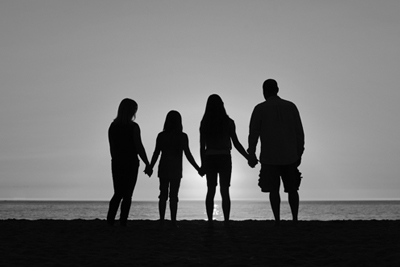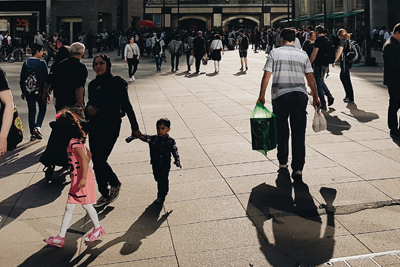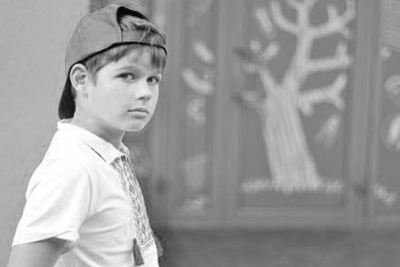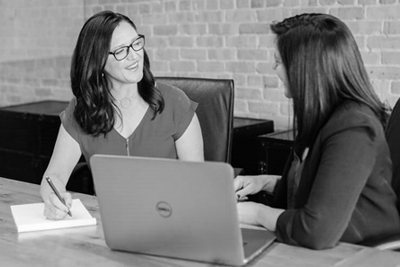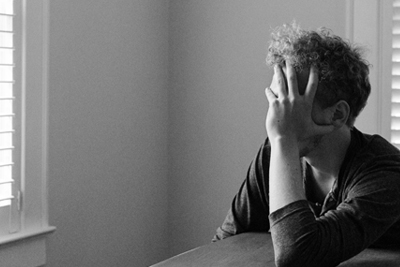Coping with School Uncertainty
Parenting isn’t easy under the best of circumstances. Now throw in a pandemic. Trying to decide what is best for your family, along with juggling working from home and homeschooling, has left many parents and children with a heightened amount of stress and anxiety. Unfortunately, those feelings are not yet over as the virus continues to plague communities. And, there is another looming issue that is weighing heavily on the minds of many parents… school.
Rochester Center for Behavioral Medicine Psychologist, Dr. Ashley Ceresnie and Clinical Social Worker, Katherine Tessmar have some tips on how to cope with school uncertainty and make the best decision for you and your child.
DO YOUR HOMEWORK
“Every family's situation is unique,” says Dr. Ashley.
When deciding whether to attend school in person or participate in a distance learning program, along with how to handle the associated stress, parents need to come up with a plan that fits their specific situation. Dr. Ashley encourages parents to meet with their pediatricians to discuss safety concerns for their children and others who live in the home. If needed, parents should also speak with a mental health professional about how their child might handle the transition back to school or the decision to continue learning from home.
Tessmar says parents should research their school's re-entry plan to make sure they are providing a safe environment for children, parents, and staff. She encourages families to speak to school staff in their district about what the expectations are of each program as well as what precautions will be taken to ensure safety should your child return to in-person school.
“Decide what plan works best for your family dynamic,” Tessmar says. “It’s important to consider the needs of each person in your family while keeping in mind learning styles, needs, and medical issues, along with social, emotional, and behavioral health."
“I encourage parents to feel confident in whatever decision that they make for their children and their family,” Dr. Ashley says. “It may look different than your neighbor or best friend’s family and that is ok.”
EVERYONE IS DEALING WITH THE SAME EDUCATIONAL PANDEMIC
Although many parents may be concerned about their child(ren) falling behind academically amid the pandemic disruptions, Dr. Ashley reminds parents that every student has had the same disruption with in-person lessons. Schools and the state are very aware of this concern and are developing plans to meet the needs of every learner.
“In Governor Whitmer’s Return to School Roadmap, it is strongly recommended that schools review student data to identify learning needs and develop appropriate interventions,” Dr. Ashley says. “Additionally, a review of students’ current IEP goals is recommended to be revised and updated to reflect time away from in-person support services.”
Tessmar says for those worried about the educational benefits of homeschooling compared to a traditional school, families should sit down together and identify group along with individual activities to participate in that stimulate learning. Examples include cooking together, playing games, building something, working out, or having a family book club.
“These activities exercise the brain and body, enhancing fine and gross motor skills, social skills, emotional/mental health, and academic skills such as math and reading," Tessmar says.

SPEAK OPENLY AND HONESTLY WITH YOUR CHILD
Tessmar says when parents speak to their children about the pandemic or school uncertainty, they often make the mistake of speaking in distress, minimizing concerns and not using age-appropriate language. This adds to a child’s stress and will not help in making a decision about which school option is most appropriate.
To have the most positive impact when explaining the school plan that your family has decided, Tessmar encourages parents to speak calmly and reassure safety. Let your child know they can talk to you and ask any questions they may have. Provide ample information to your child on keeping themselves safe at home, in the community and school.
"Make sure you are being truthful and that they can appropriately understand what you are communicating to them," Tessmar explains. “For younger children and those with special needs, social stories can be an effective way to educate and communicate with children.”
Dr. Ashley agrees, encouraging parents to be honest when they don’t have an answer. She suggests saying, “That’s a really good question and I don’t have an answer right now, but I will find out and then we can talk about it.”
Parents can ease anxiety and stress around school uncertainty by modeling the behavior that they want to see in their children. Dr. Ashley states, “It is important for parents to model how to best manage their difficult feelings and encourage children to adapt and learn most positively."
"Parents must be mindful of their anxieties and how they present information," Dr. Ashley explains. “Kids are very perceptive and take their cues on how to think and behave from us as parents.”


